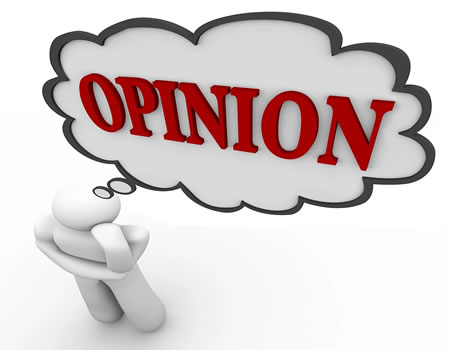I woke up last Wednesday, just like many Nigerians, to the devastating news of the astronomical increase in the pump price of fuel. It was sudden and shabbily implemented, and this much can be deduced from the hues of Nigerians who had expressed concerns about the new development on the social media and traditional media. It got even more confusing when the fuel hike was hinged on the removal of fuel subsidy. Don’t get me wrong, I am not opposed to fuel subsidy removal as I had in the past canvassed for its removal in series of articles. But I do not want to believe the recent fuel hike has anything to with subsidy removal as some had tried to portray Yes, President Bola Tinubu had hinted about the removal of fuel subsidy during his inauguration speech when he declared that “subsidy is gone.” However, the manner in which pump price of fuel went up does not in real sense projected the removal of subsidy. In fact, it only replayed a pattern usually employed by the immediate president, Muhammadu Buhari, in jacking up price of fuel during his eight years rule.
In 2016, the Buhari administration had adjusted the price of petrol from the N87 per litre it inherited it to N145 per litre. The justification for that increase at that time was the removal of subsidy. Don’t take my word it, hear the Minister of State for Petroleum Resources at that time, Ibe Kachicku, who said that “there is no provision for subsidy in 2016 appropriation,” adding that “As at today, the PMS (petrol) price of ₦86.50 gives an estimated subsidy cla of ₦13.7 per litre, which translates to ₦16.4 billion monthly. There is no funding or appropriation to cover this.” His position was reinforced by Buhari who disclosed in his Democracy Day Anniversary broadcast that year that the “very painful but inevitable decisions we had to make in the last few weeks specifically on the pump price of fuel” before he went on to explain that traditionally fixing price of fuel, after comprehensive investigation, “my advisers and I concluded that the mechanism was unsustainable.” The simple inference from the words of Kachicku and Buhari, who though, was the president at that time, still double as the Minister of Petroleum, clearing suggested the removal of subsidy in petroleum products. Disturbingly however, the same Buhari administration still came up with yet another fuel hike in September 2020 and hinged the development on the removal of subsidy from petroleum products. And just like in 2016, the reason for the fuel hike was the removal of subsidy. But the truth, which Nigerians have come to found out, Buhari government expended more than N11trn to service the same fuel subsidy it had attributed for fuel hike in his eight years in office.
This was why I am not just skeptical but deeply concerned at the latest development because it has every footprint of the Buhari administration’s approach on fuel pump price. Removing fuel subsidy will mean the full deregulation of the downstream sector, and nothing so far suggested that was what has happened. Deregulation, going by the Cambridge Dictionary, entails the action of removing national or local government controls or rules from a business or other activities. In the Financial Dictionary, deregulation means the reduction of government’s role in controlling markets. Drawing from both definitions, it is hard to agree with the suggestions that the current fuel hike in Nigeria is in anyway related to the removal of subsidy. Are you lost? Take a look at the price list for pump price of petrol released by the Nigerian National Petroleum Corporation (NNPC) in the early hours of Wednesday. Although, some people have contended that the price list was only for stations under its operation but the picture I believe they must have missed is that, NNPC is the only importer of fuel to Nigeria. What this simply imply is that the pricing template of the NNPC will bear on filling stations across the country. And this could be seen in how every fuel stations across Nigeria immediately adjusted the new pump price of fuel. This in every form negates the principle of market force that should be the determinant of pump price of fuel if subsidy had actually been removed.
So, it is important for the new administration to come out plain on the subsidy issue. It would be totally unfair to Nigerians to make them go through pains that the recent hike in pump price is surely to inflict, and later turnaround to claim the existence of subsidy payment as it was the experience under Buhari. If the Tinubu administration is sincere about the subsidy removal, it must do the right thing by opening up the sector to ensure that the market force is what determines the price, not a sole importer of the product, as we have seen with the NNPC over the years. This will give room for competition and bring some level of transparency to the sector, which will in turn, drive benefits for Nigerians. Anything outside this will be a continuation of the mess that characterized the past, which not only unduly inflicted pains on Nigerians, but also swallowed substantial amount of the country’s wealth that should have gone to far more meaningful interventions.
Between 2005 and now when subsidy got prominent among Nigerians, it has consumed more than N20trn. This is a huge amount of money that could do a whole lot for Nigerians in the health, education and fixing infrastructures among others. It is therefore not in contention that it has outlived its usefulness and needs to go but nevertheless, it should not become a tool to play Nigerians as done in the past.
Apart from addressing the restriction to the importation of the product to Nigeria, the new administration must detail plans of investing the funds freed from the subsidy regime. This will include putting in place palliatives as done by the Goodluck Jonathan administration when it contemplated subsidy removal in 2012 to cushion the effect of the people, and also clearly pointing out Nigerians where the money that was supposed to go into fuel subsidy will end up. It won’t be good for Nigerians to bear the pains of subsidy removal and the money freed from it end up in private pockets.
- Ibrahim writes in from Iwo, Osun State, via neyoclass09@gmail.com
YOU SHOULD NOT MISS THESE HEADLINES FROM NIGERIAN TRIBUNE
Oyedepo, Enenche, others not fake for supporting Obi – Primate Ayodele
The leader of INRI Evangelical Spiritual Church, Primate Elijah Ayodele has cautioned Nigerians from referring to Bishop Oyedepo, Pastor Paul Enenche, and…
WEEK BRIEF: Tinubu Presidency, fuel subsidy saga and NLC war drums
On May 29, Bola Ahmed Tinubu became the 16th president of the Federal Republic of Nigeria. He was sworn in as President of Nigeria by…
Why I sacked Auxiliary as PMS boss — Makinde
Following the clash of interest that ensued between the former Chairman of disciplinary committee of the Park Management System in…
I met my wife virgin at 21 — Isreal DMW
Superstar Davido’s aide, Isreal Afeare aka Isreal DMW, has responded to critics who were trolling him over his…
The fuel subsidy issue
DURING his inauguration speech, President Bola Ahmed Tinubu announced that the era of…
SERIE A: Victor Osimhen becomes first African to win Capocannoniere award
In a historic achievement Napoli striker Victor Osimhen has become the first African footballer to…






